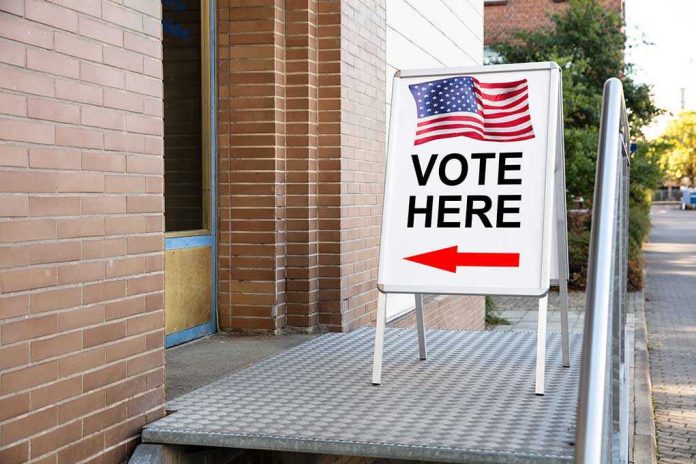
Georgia is gearing up for one of its largest voter purges in recent history, targeting nearly half a million inactive voters before the summer ends, sparking a heated debate on election integrity versus voter suppression.
At a Glance
- Georgia plans to remove 477,883 inactive voters from its rolls by the end of summer 2025.
- The action is part of a legally mandated process to maintain accurate voter lists.
- Concerns arise over potential disenfranchisement of eligible voters.
- Georgia’s initiative is the largest voter roll cleanup in eight years.
Georgia’s Bold Move to Clean Up Voter Rolls
Georgia Secretary of State Brad Raffensperger has announced a sweeping initiative to purge 477,883 inactive voter registrations from the state’s voter rolls by the end of summer 2025. This effort marks the largest voter roll cleanup in Georgia in eight years and is framed as a decisive step to ensure election integrity. The inactive voter registrations are primarily flagged due to address changes, lack of contact, or undeliverable mail, as identified through data from the Electronic Registration Information Center (ERIC) and the United States Postal Service (USPS).
According to Raffensperger, this initiative is not just about removing names from the list but about maintaining an accurate and up-to-date voter roll that reflects Georgia’s true electorate. “Every voter in Georgia is in control of his or her voter registration status,” Raffensperger emphasized, underscoring the state’s commitment to transparency and legal compliance. However, the decision has sparked a familiar debate over the balance between election security and voter access, with some advocacy groups warning of the risk of disenfranchising eligible voters.
The Legal and Historical Context
Voter list maintenance in Georgia is mandated by both federal and state law, including the National Voter Registration Act of 1993, which allows states to remove voters who have moved or become inactive. Georgia’s “use it or lose it” law further supports this by canceling registrations after two missed general elections if there has been no contact with election officials. The state joined ERIC in 2021, enhancing its ability to verify voter data across states and identify those who may have moved. This membership has been crucial in supporting Georgia’s voter roll maintenance efforts.
The initiative arrives amidst ongoing national debates about voter roll purges and election security. While some states have withdrawn from ERIC due to concerns about its effectiveness, Georgia remains a steadfast participant, relying heavily on the data provided to ensure accurate voter verification.
Stakeholders and Their Interests
At the heart of this initiative is Brad Raffensperger, Georgia’s Secretary of State, who is driving the effort with support from the Georgia Secretary of State’s Office. The primary motivation is to uphold election integrity and administrative efficiency. Organizations like ERIC, the Georgia Department of Driver Services, and USPS play crucial roles by providing data that ensures the accuracy of voter rolls.
However, the initiative has drawn criticism from advocacy groups such as the ACLU and the Palast Investigative Fund. These groups are focused on protecting voting rights and ensuring that eligible voters are not erroneously removed from the rolls. They argue that the reliance on data from ERIC and USPS may lead to high error rates and potential disenfranchisement, particularly among voters who have moved within the state or have inconsistent voting patterns.
Implications and Future Outlook
In the short term, the potential removal of nearly half a million voter registrations could lead to a significant administrative workload for county election offices. There is also the risk of eligible voters being disenfranchised if they are unaware of their status or unable to respond in time to the cancellation notices. In the long term, proponents argue that the initiative will result in improved accuracy of voter rolls and reduced risks of fraud or administrative errors.
The ongoing debate over voter roll maintenance underscores the need for a delicate balance between election integrity and voter access. While Georgia’s initiative sets a precedent for other states considering similar actions, it also reinforces the role of data-sharing organizations like ERIC in election administration.
Sources:
Georgia Secretary of State, 2024-02-06
Georgia Secretary of State, 2025-07-10
Atlanta Journal-Constitution, 2025-07-10
Palast Investigative Fund/ACLU, 2020




